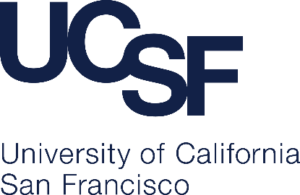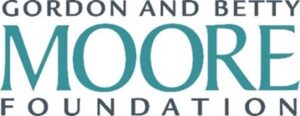The University of California, San Francisco (UCSF) and the Council of Medical Specialty Societies (CMSS) Award $100,000 Planning Grants to Seven Specialty Societies Seeking to Improve Diagnostic Feedback in Clinical Registries
NEWS RELEASE
The University of California, San Francisco (UCSF) and the Council of Medical Specialty Societies (CMSS) Award $100,000 Planning Grants to Seven Specialty Societies Seeking to Improve Diagnostic Feedback
Washington, DC (December 11, 2023) –
The University of California, San Francisco (UCSF) in partnership with the Council of Medical Specialty Societies (CMSS) have awarded 7 specialty societies grants of $100,000 each to advance closing the diagnostic loop by providing frontline clinicians with feedback on their diagnostic performance in clinical registries. The planning grants fund societies for 12 months to develop plans for scalable demonstration projects of diagnostic performance feedback that is impactful for their specialties.
Feedback about diagnostic decision-making and performance is an important intervention to improve learning and future diagnostic performance. The awards address a variety of projects to improve diagnostic feedback for lupus nephritis, autism spectrum disorder and depression in pediatric patients, lung cancer, emergency general surgery for older adults, communication of pathology results, evaluation of missed diagnostic opportunities in the emergency department, and diseases of the eye.
These awards are the result of a competitive grant program administered by UCSF and CMSS and funded by the Gordon and Betty Moore Foundation for medical specialty societies to support the development of diagnostic performance feedback using clinical registries. The John A. Hartford Foundation, which promotes age-friendly health care, is providing supplemental support for the grant to the American College of Surgeons.
Proposals were reviewed by an external advisory committee comprised of a diverse group of national experts in diagnostic performance, informatics, quality improvement and research.
UCSF and CMSS are pleased to announce the following recipients of Phase 1 Planning Grants:
- American Academy of Ophthalmology - Diagnostic Performance Feedback for Ophthalmology through the IRIS® Registry (Intelligent Research in Sight)
- American Academy of Pediatrics - Improving Diagnostic Excellence through Pediatric Primary Care Performance Feedback: CHILD Registry
- American College of Emergency Physicians - Enhancing Emergency Physician Diagnostic Performance Feedback
- American College of Radiology - Expanding Capability for the Early Detection of Lung Cancer
- American College of Rheumatology - Feedback on Diagnostic Pathway Adherence at Scale for the Timely Diagnosis of Lupus Nephritis in Routine Clinical Practice: Leveraging the American College of Rheumatology's RISE Registry
- American College of Surgeons - Diagnostic Feedback for Clinicians Treating Older Adult Emergency General Surgery Patients
- College of American Pathologists - Improving Communication of Test Results by Providing Feedback on The Circumstances of Diagnostic Uncertainty and How it is Communicated
In addition to the selection and provision of grants to individual societies, UCSF, in partnership with CMSS, will serve as a coordinating center to monitor and promote cross-specialty learning, improvement, collaboration, and identification of best practices in diagnostic performance feedback that can be shared with the broader medical community. Implementation Grants will be awarded to a subset of grantees in Phase 2 to build upon the planning work in Phase 1.
“In most fields of human performance, feedback is used to improve future performance. However, measuring diagnostic performance in healthcare, and delivering that feedback to clinicians has long been a challenge,” says Ben Rosner, MD, PhD, FAMIA, Principal Investigator at UCSF’s Center for Clinical Informatics and Improvement Research. “The awardees for these Planning Grants have risen to that challenge through innovative proposals on how to provide diagnostic performance feedback to their members at scale. We are thrilled to support them, and excited to see how the final products of their work will improve future care for patients.”
Medical specialty societies are well-positioned to educate and disseminate effective strategies that advance diagnostic performance feedback among their members through their clinical registries. Helen Burstin, MD, MPH, MACP, CEO of CMSS adds that “With the generous support of our funders, 7 specialties are actively engaging their members in diagnostic performance feedback. A key component of the grant program will enable clinicians to routinely receive feedback on their diagnostic performance in their specialty society clinical registries, thus reducing diagnostic error and advancing diagnostic excellence.”
“The lack of timely feedback to individual clinicians, practice sites, and health care systems has been a persistent, vexing problem affecting our ability to improve diagnosis across all specialties,” says Karen Cosby, MD, Program Director of the Diagnostic Excellence Initiative of the Gordon and Betty Moore Foundation. “We are excited by the range of ideas and perspectives represented by the award recipients and are enthusiastic about the potential impact of their work.”
According to Julia Adler-Milstein, PhD, Chief of the Division of Clinical Informatics and Digital Transformation at UCSF and founding Director of UCSF’s Coordinating Center for Diagnostic Excellence, “The enthusiasm of these societies to undertake this work is a strong signal of the importance of feedback in improving the diagnostic process. This work is one of several initiatives demonstrating UCSF’s ongoing commitment to improving diagnostic excellence both locally and nationally.”
###
The Council of Medical Specialty Societies (CMSS) is a coalition of more than 50 specialty societies representing more than 800,000 physicians across the house of medicine. CMSS advances the expertise and collective voice of specialty societies and the patients they serve to drive meaningful change in the future of healthcare. For more information, visit www.cmss.org.
The University of California, San Francisco is the leading university exclusively focused on health. Through advanced biomedical research, graduate-level education in the life sciences and health professions, and excellence in care delivery, UCSF spearheads revolutions in health worldwide. www.ucsf.edu
Gordon and Betty Moore established the foundation to create positive outcomes for future generations. In pursuit of that vision, we advance scientific discovery, environmental conservation, and the special character of the San Francisco Bay Area. www.moore.org
The John A. Hartford Foundation, based in New York City, is a private, nonpartisan, national philanthropy dedicated to improving the care of older adults. The foundation has three priority areas: creating age-friendly health systems, supporting family caregivers, and improving serious illness and end-of-life care. Visit www.johnahartford.org.
Media Contacts:
CMSS: Julia Peterson, Chief Operating Officer, jpeterson@cmss.org
UCSF: Sarah Rosenthal, Research Assistant, Sarah.Rosenthal@ucsf.edu
The Gordon and Betty Moore Foundation: Caitlin Cobb, Communications Officer, Caitlin.cobb@moore.org
The John A. Hartford Foundation: Marcus Escobedo, VP, Communications and Senior Program Officer, marcus.escobedo@johnahartford.org



